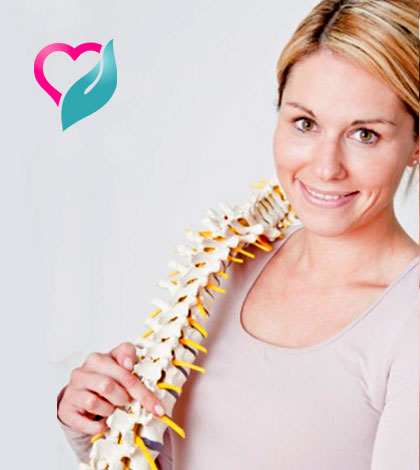Bones are literally the support system of the body. And we know it is important to keep them strong and healthy. Bones are continuously being lost and regained throughout our lifetime.
[wp_ad_camp_1]
Until almost age 30, body creates new bones faster, but after age 30, more bone is lost than gained. Weak bones may seem like a problem of aging, but there is plenty we can do in early life to make sure bones stay healthy down the line. You probably know that calcium and vitamin D are needed to build strong bones. Maintaining healthy bones prevents debilitating conditions like fracture and osteoporosis, especially for women. But certain lifestyles will accelerate bone loss. Let’s look in detail about bone health and your habits.
Too Much Protein May Lower Bone Density
You need protein to build strong bones, but when you eat too much protein, your body produces chemicals called sulfates that can cause calcium to leach out of the bones. This effect on bones is more likely to occur with animal protein than vegetable protein. Special high protein diets that contain multiple servings of meat and protein with each meal can also cause the body to lose calcium. You can make up for this loss by getting enough calcium for your body’s needs. For example dairy products, although high in protein, also contain calcium that is important for healthy bones.
[wp_ad_camp_4]
Caffeinated Drinks
Recent studies have found women who drink 330 milligrams of caffeine or more a day — the equivalent of about four cups of coffee — have an increased risk of bone fractures. This risk was especially noted in women who had a lower consumption of calcium.
Retinol Form of Vitamin A
Researchers have found that women taking vitamin A in doses exceeding 3000 micrograms a day were twice as likely to suffer a hip fracture than women who take 1,500 micrograms or less a day of vitamin A. Although vitamin A is necessary for bone growth, too much of the retinol form of vitamin A interferes with vitamin D absorption, which, in turn, causes bone loss. The retinol form of vitamin A can be found in such animal-source foods as liver, egg yolks, and dairy products as well as dietary supplements. The beta carotene form of vitamin A, found in plant sources such as carrots and sweet potatoes, has not been linked with a negative impact on bone health.
Overconsumption of Soda
Soda contains a chemical called phosphoric acid and it gives soda its tangy taste and adds to its syrupy consistency. That acid flushes calcium out of the body and it has been linked to lower bone density in those who drink 3 or more sodas a day.
Researchers have found out that cola and diet cola beverages (though not other carbonated drinks) may cause bone loss in women and may involve not just the caffeine, but the phosphorus in colas, too. It may be that the connection between colas and bone loss is due in part to the substitution of soda for milk, decreasing calcium intake.
[wp_ad_camp_2]
Other Factors That May Raise Your Risk
- Sodium – Too much sodium in your diet can cause you to excrete calcium in your urine and perspiration. Sodium is found in table salt and many processed foods.
- Oxalates – Oxalates, another form of salt found in some foods, can prevent you from absorbing calcium if the oxalates and calcium are contained in the same food product. Spinach, rhubarb, and sweet potatoes contain oxalates. Although these foods can play a role in a healthy diet, they should not be considered sources of calcium. Fortunately, oxalates do not interfere with the absorption of calcium from other foods eaten at the same time as the oxalate-containing foods.
- Wheat bran – The only food known to reduce the absorption of calcium when eaten at the same time as calcium is 100 percent wheat bran. If you take calcium supplements, foods containing wheat bran should be eaten two or more hours before or after taking the supplement.
- Beans – While beans contain calcium, beans contain magnesium, fiber and other nutrients, they are also high in substances called phytates. Phytates interfere with your body’s ability to absorb the calcium that is contained in beans. You can reduce the phytate level by soaking beans in water for several hours and then cooking them in fresh water.
- Alcohol – Excessive drinking of alcoholic beverages is also associated with lower bone density because alcohol interferes with the absorption of calcium and vitamin D. To lower your risk for osteoporosis, limit your intake of alcohol to one drink a day.
- Cigarette – Smoking causes a loss of approximately 2 % bone over a year. If you both smoke and drink yearly bone loss actually increases to 8%.
- No Exercise – Sedentary living leads to weak bones and eventual osteoporosis .Walking 30 minutes of a day is recommended. Also avoid stress.
Eating Right
A diet low in fruits and vegetables and high in animal protein and carbohydrates, will tend to result in mild acidosis which, over time, can contribute to significant bone loss. Neutralizing an acid-producing diet, which can be done by eating fruits and vegetables, may be an important key to reducing bone loss while aging.
Eating a well-balanced diet can be tricky when you are trying to keep your bones healthy. However, getting the recommended amount of calcium each day to offset any loss of calcium caused by any other foods you eat will go a long way in preventing bone loss.
[wp_ad_camp_3]
Image courtesy: albawaba.com , mirror.co.uk
























